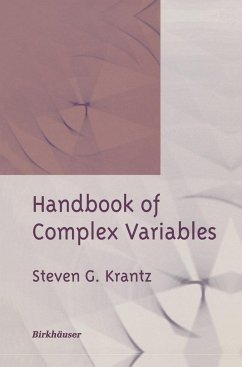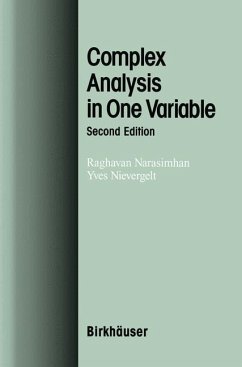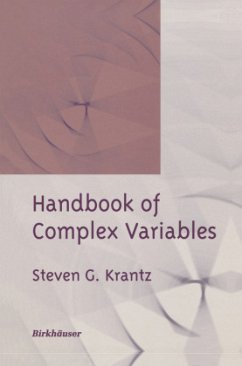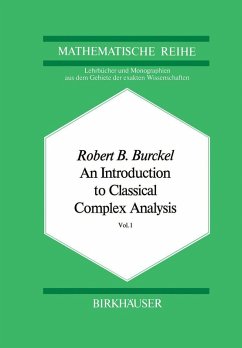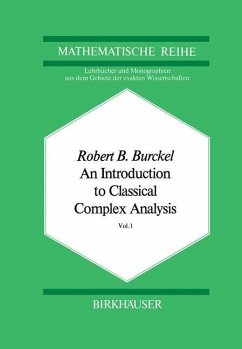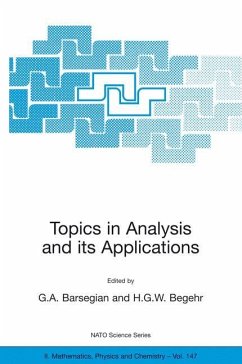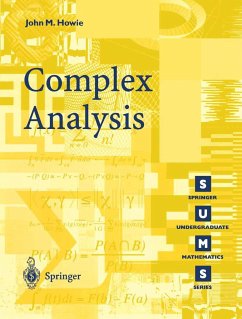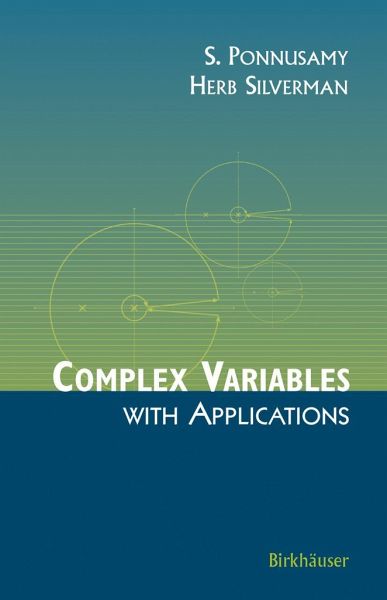
Complex Variables with Applications
Versandkostenfrei!
Nicht lieferbar
- Preface
- Algebraic and Geometric Preliminaries
- Topological and Analytic Preliminaries
- Bilinear Transformations and Mappings
- Elementary Functions
- Analytic Functions
- Power Series
- Complex Integration and Cauchy's Theorem
- Applications of Cauchy's Theorem
- Laurent Series and the Residue Theorem
- Harmonic Functions
- Conformal Mapping and the Riemann Mapping Theorem
- Entire and Meromorphic Functions
- Analytic Continuation
- Applications
- References
- Index of Special Notations
- Hints for Selected Questions and Exercises
- Index.
- Algebraic and Geometric Preliminaries
- Topological and Analytic Preliminaries
- Bilinear Transformations and Mappings
- Elementary Functions
- Analytic Functions
- Power Series
- Complex Integration and Cauchy's Theorem
- Applications of Cauchy's Theorem
- Laurent Series and the Residue Theorem
- Harmonic Functions
- Conformal Mapping and the Riemann Mapping Theorem
- Entire and Meromorphic Functions
- Analytic Continuation
- Applications
- References
- Index of Special Notations
- Hints for Selected Questions and Exercises
- Index.
Complex numbers can be viewed in several ways: as an element in a field, as a point in the plane, and as a two-dimensional vector. Examined properly, each perspective provides crucial insight into the interrelations between the complex number system and its parent, the real number system. The authors explore these relationships by adopting both generalization and specialization methods to move from real variables to complex variables, and vice versa, while simultaneously examining their analytic and geometric characteristics.
The engaging exposition is replete with discussions, remarks, questions, and exercises, motivating not only understanding on the part of the reader, but also developing the tools needed to think critically about mathematical problems. The material includes numerous examples and applications relevant to engineering students, along with some techniques to evaluate various types of integrals. The book may serve as a text for an undergraduate coursein complex variables. The only prerequisite is a basic knowledge of advanced calculus. The presentation is also ideally suited for self-study.
The engaging exposition is replete with discussions, remarks, questions, and exercises, motivating not only understanding on the part of the reader, but also developing the tools needed to think critically about mathematical problems. The material includes numerous examples and applications relevant to engineering students, along with some techniques to evaluate various types of integrals. The book may serve as a text for an undergraduate coursein complex variables. The only prerequisite is a basic knowledge of advanced calculus. The presentation is also ideally suited for self-study.






